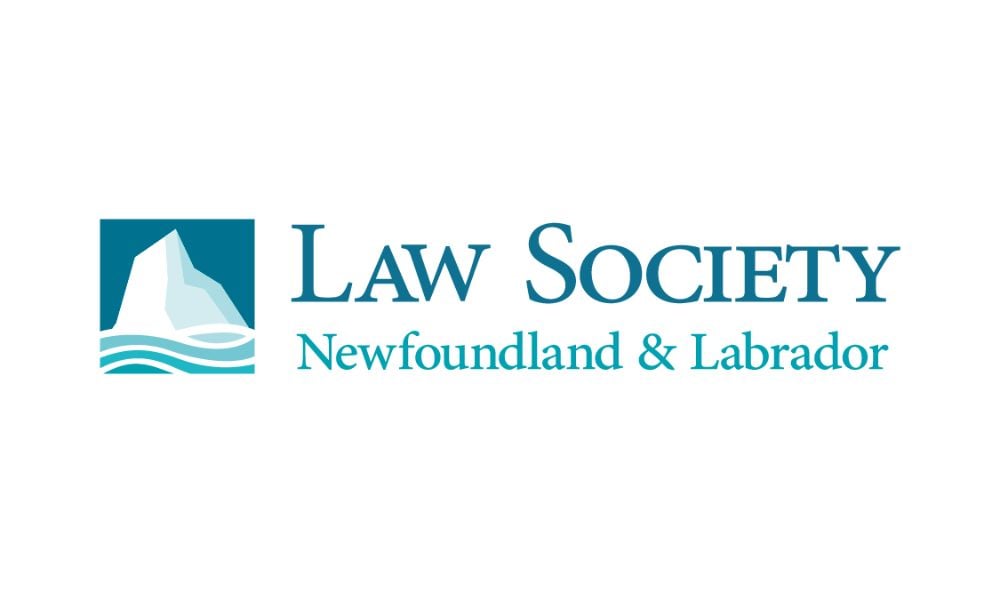Complaint must cite 'with clarity and precision' what obligation is alleged to have been breached

A St. John’s lawyer has won the right for the Complaints Authorization Committee of the Law Society of Newfoundland to quash a letter of counsel and have the complaint against him reconsidered after the Court of Appeal of Newfoundland and Labrador upheld a lower court’s ruling that the disciplinary committee’s original decision was unreasonable.
“When investigating an allegation of professional misconduct, the law society has a duty to tell the member what professional obligation is alleged to have been breached with clarity and precision,” Justice Katherine O’Brien wrote on behalf of the appeal court in a decision released Tuesday. Justices Francis O’Brien and Gillian Butler concurred.
“If particular sections of the [Law Society] Act, the Code [of Professional Conduct], or other regulations are engaged, then they should be identified. This is a matter of procedural fairness and necessary so that the member can understand the nature of the alleged breach and respond effectively.”
The decision deals with the fallout from comments made to the media by Robert Buckingham after a client died while in custody at Her Majesty’s Penitentiary. Buckingham implied that his client appeared to “have died at the hands of a correctional officer.”

Robert Buckingham, Buckingham Law
The Newfoundland and Labrador Association of Public and Private Employees (NAPE), the correctional officers’ union, complained to the law society about Buckingham’s public statements.
NAPE claimed his statement that his client’s death “appear[ed] to be at the ... hands of ... the correctional officers” and his statement that he knew “more than what [he could] say.” NAPE alleged that by making these comments, Buckingham breached the professional conduct code of the province’s legal regulator.
The CAC reviewed the allegations and Buckingham’s response. It decided there were reasonable grounds to believe that Buckingham had engaged in conduct deserving of sanction, and it issued a “Letter of Counsel” to the lawyer.
A lawyer does not have the right to appeal a CAC decision, but by common law, a lawyer can ask the Supreme Court of Newfoundland and Labrador to review it. Buckingham did, and the judge reviewing the CAC’s decision found it unreasonable. In doing so, the judge said the CAC has a duty to give reasons when counselling or cautioning a lawyer and had not done so sufficiently in this case. It sent the case back to the CAC for reconsideration.
The lower court judge also found that the CAC’s decision did not demonstrate that it “was alive to the requirement” to do a context-specific balancing of factors before coming to its decision, as endorsed by the Supreme Court of Canada in Groia v Law Society of Upper Canada.
Lawyer Joseph Groia was sanctioned for professional misconduct for lack of civility towards the prosecution during a trial. The case eventually went to the country’s highest court. It ruled in favour of Groia, saying he had a reasonable basis to accuse the prosecution of misconduct, even though the allegations stemmed from his mistaken understanding of the law.
SCC Justice Michael Moldaver, writing for the majority, worried that the law society’s decision would make lawyers think twice about forcefully defending their clients for fear of being charged with misconduct. Four judges agreed.
The provincial supreme court judge in Buckingham’s case ruled that the CAC’s decision was not justified because it did not engage in any meaningful way with Buckingham’s assertion that he “had a reasonable belief in the truth of what he said, nor with the fact that his statements were not presented as definitive conclusions as to what had occurred, but as support for his position that an inquiry [into the death of his client] should be called.”
The CAC’s decision was also unreasonable “because it was not justified by reference to the legal constraints imposed on it.”
Buckingham had responded to the allegations with a ten-page letter. He stated that his comments were a response to information from the union through the media and an unnamed source about his client’s interactions with correctional officers just before his death.
Buckingham identified this information as the basis for his analysis and position and emphasized his professional duty to advocate for his clients (the deceased client and that man’s family).
The law society appealed the provincial supreme court judge’s decision to the higher court on two grounds:
- The judge erred in finding that the CAC had a duty to give reasons for its decision to counsel Mr. Buckingham.
- The judge erred in finding that the reasons the CAC gave in the Letter of Counsel did not meet the requirements of reasonableness.
The law society was joined in the appeal by eight health-related, self-governing, statutory bodies, including the College of Physicians and Surgeons of Newfoundland and Labrador, the Newfoundland and Labrador Pharmacy Board, the College of Registered Nurses of Newfoundland and Labrador, The Newfoundland and Labrador College of Dietitians, the College of Licensed Practical Nurses of Newfoundland and Labrador, the Newfoundland and Labrador Psychology Board, the Newfoundland and Labrador Council of Health Professionals, and the Newfoundland and Labrador College of Social Workers.
Each intervenor has the authority to counsel or caution a member. The intervenors agreed with the provincial supreme court judge’s finding that the CAC had a duty to give reasons for its decision to counsel. However, they argued that the judge’s decision set the bar too high for the content of the CAC’s reasons. The intervenors also argued that there should be one law of professional regulation in this province that is workable for all regulators.
In writing her decision on behalf of the appeal court panel, Justice O’Brien said that given that allegations may be filed with the law society by members of the public with little knowledge about professional standards, the society needs “to decide what professional obligations are engaged.” While investigating, additional professional obligations may come under consideration.
The law society had argued that the allegations forwarded to Buckingham were sufficiently broad to inform him that he had violated Chapter 7.5-1 of the Code. In the Letter of Counsel, the CAC concluded that there were reasonable grounds to believe that Buckingham’s public comments, identified above in the media exchanges, were not compliant with Chapter 7.5-1 of the Code.
The society did not use the specific wording of Chapter 7.5-1 in the allegations. However, it states: “Provided that there is no infringement of the lawyer’s obligations to the client, the profession, the courts, or the administration of justice, a lawyer may communicate information to the media and make public appearances and statements.”
The CAC noted that when Buckingham gave his media statements, the evidence to support them did not exist. He had made these statements deemed a homicide.
The CAC did not give further reasons, and it did not identify any other specific material as supporting its conclusion. It did state more generally that its opinion was on “the basis of the information on file.”
However, Justice O’Brien wrote that “Overall, the CAC’s decision does not adequately explain why it found reasonable grounds to believe that [Buckingham] infringed his obligations to the administration of justice in the context of his duty to advocate for his clients, his right of free expression, and his conviction that what he said was true, based on the information he had.
“The CAC’s decision did not meet the requirements of justification, transparency, and intelligibility, primarily because it did not demonstrate that it considered these legal and factual constraints.”
Requiring that the CAC explain its decision “rationally, logically, and in relation to the applicable facts and law is not too great a burden,” Justice O’Brien wrote. “Doing so does not require that the CAC give court-like reasons or in-depth analysis of all issues raised. Nor is it inconsistent with the CAC’s role within the Act’s regime for disciplinary matters.”
Even at the CAC stage of the disciplinary process, a member is “due an intelligible explanation as to why his or her behaviour is believed on reasonable grounds to be professional misconduct.”
If not, O’Brien wrote, a letter of counsel or caution “will not otherwise be effective at guiding the lawyer’s future behaviour and will not advance the goal of public protection.”










